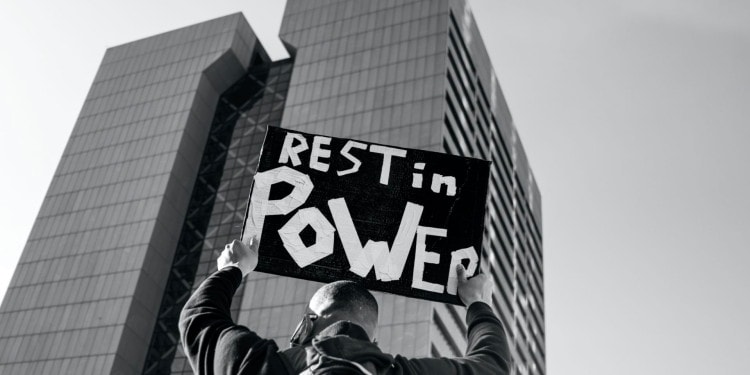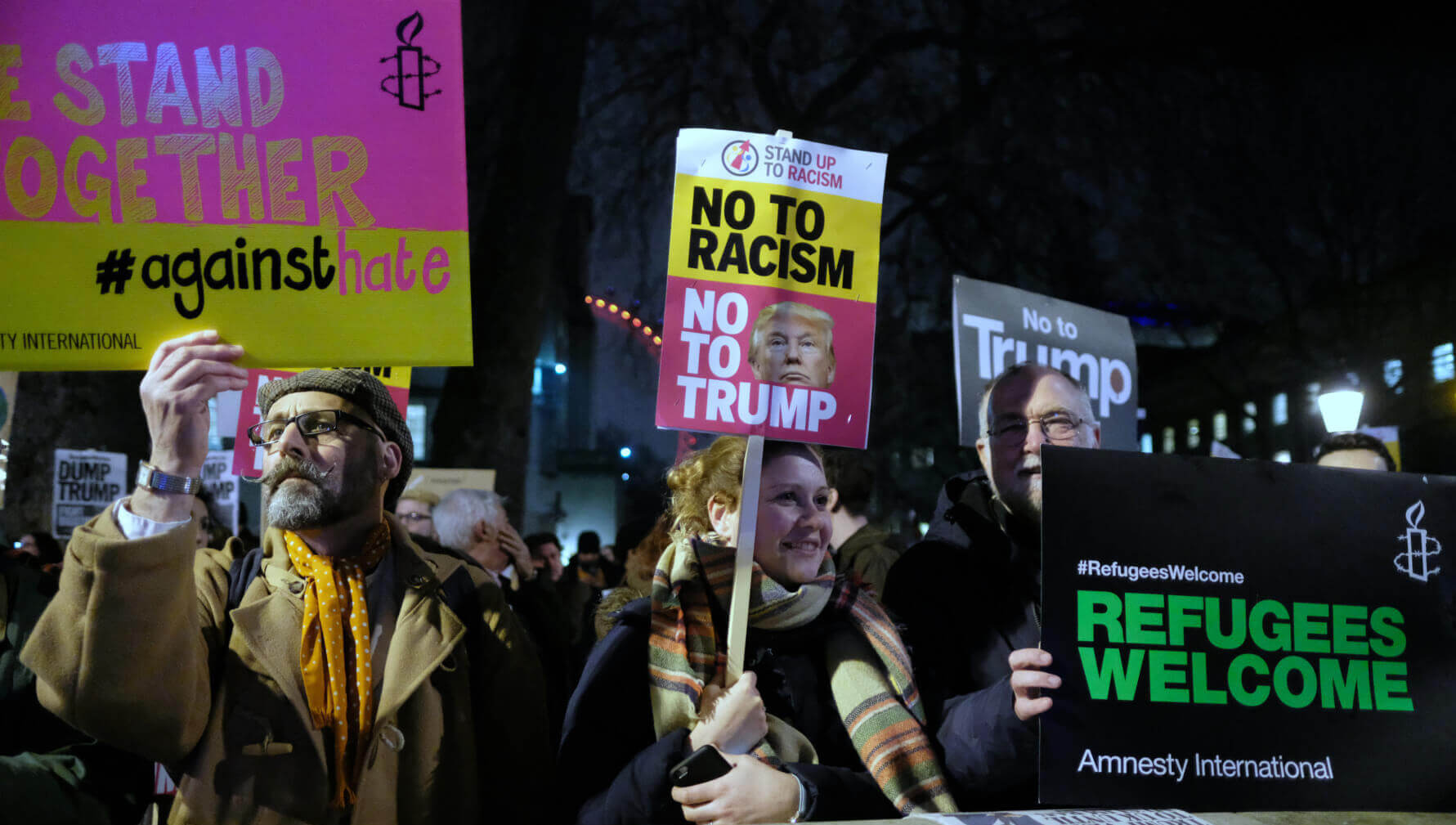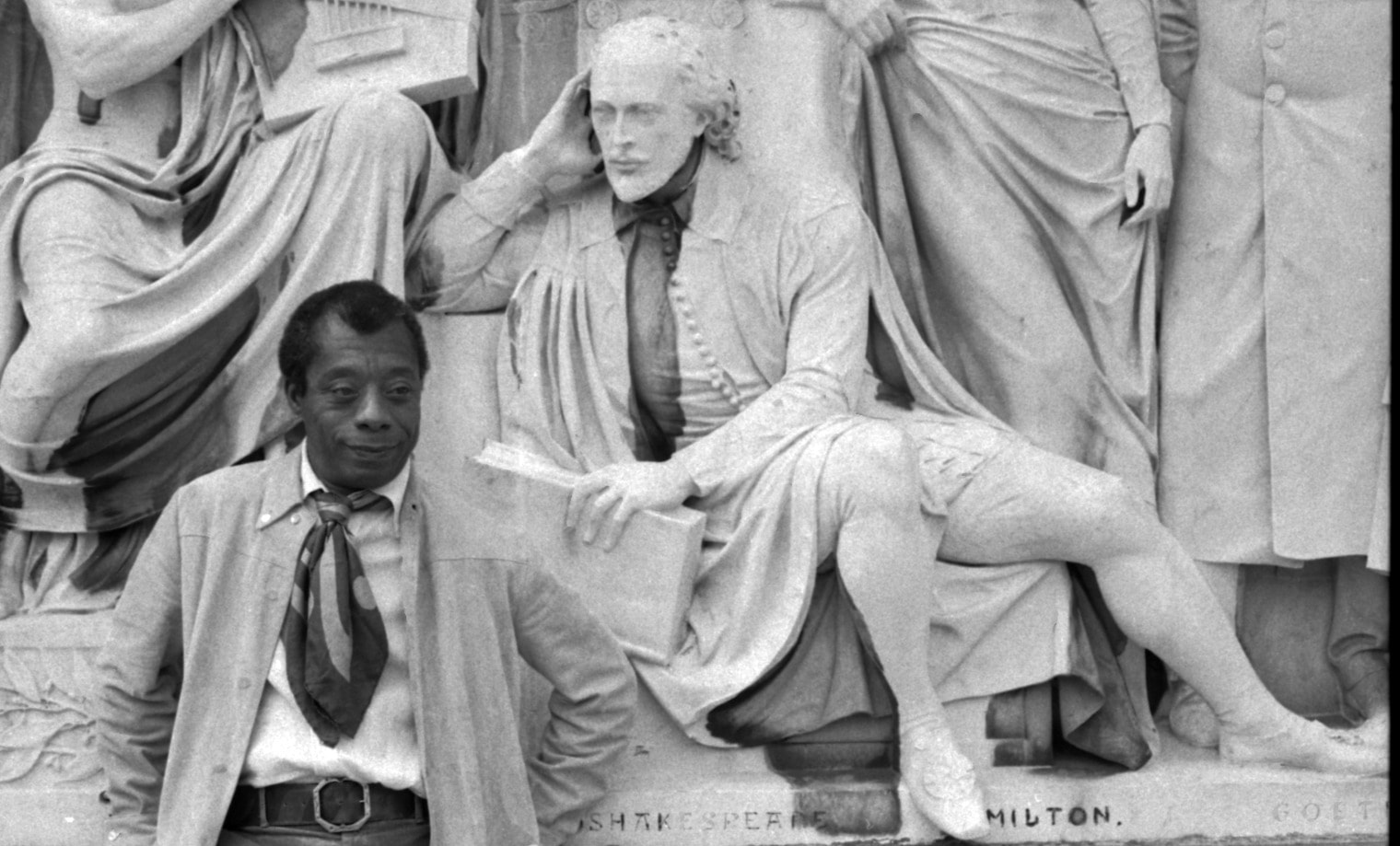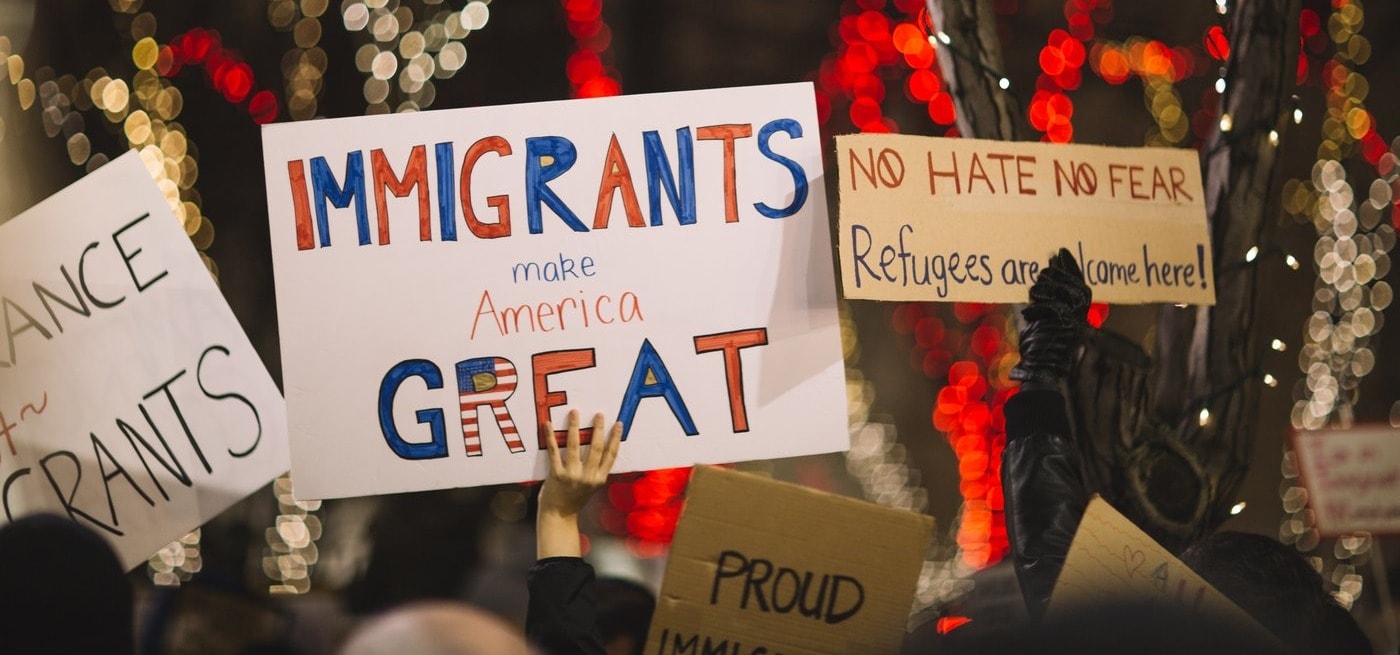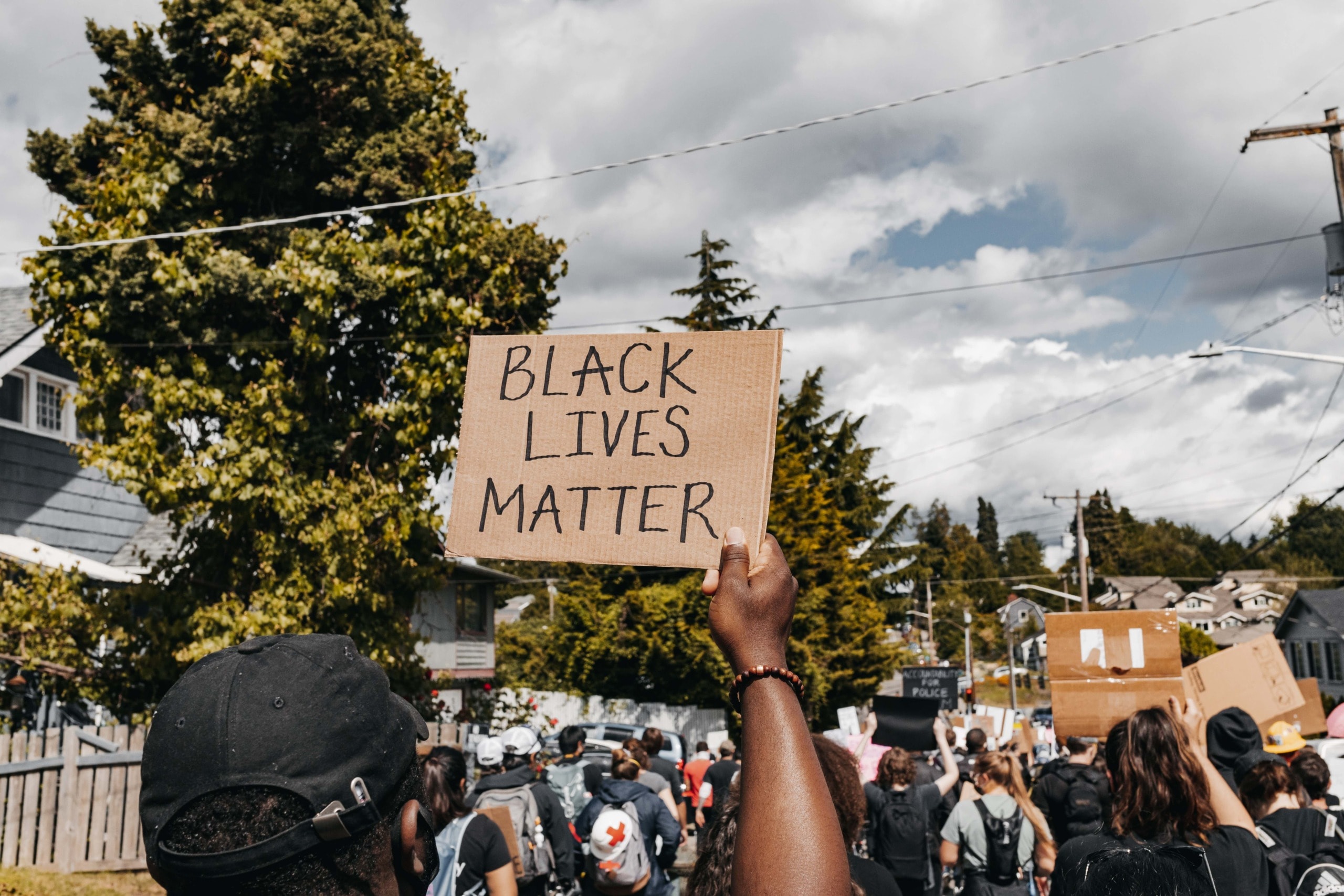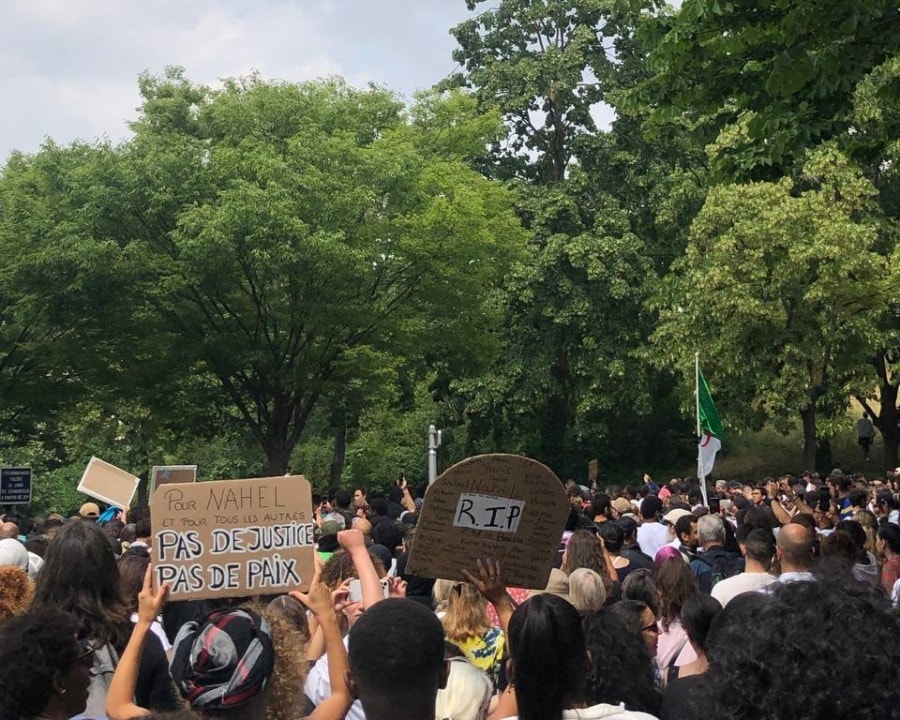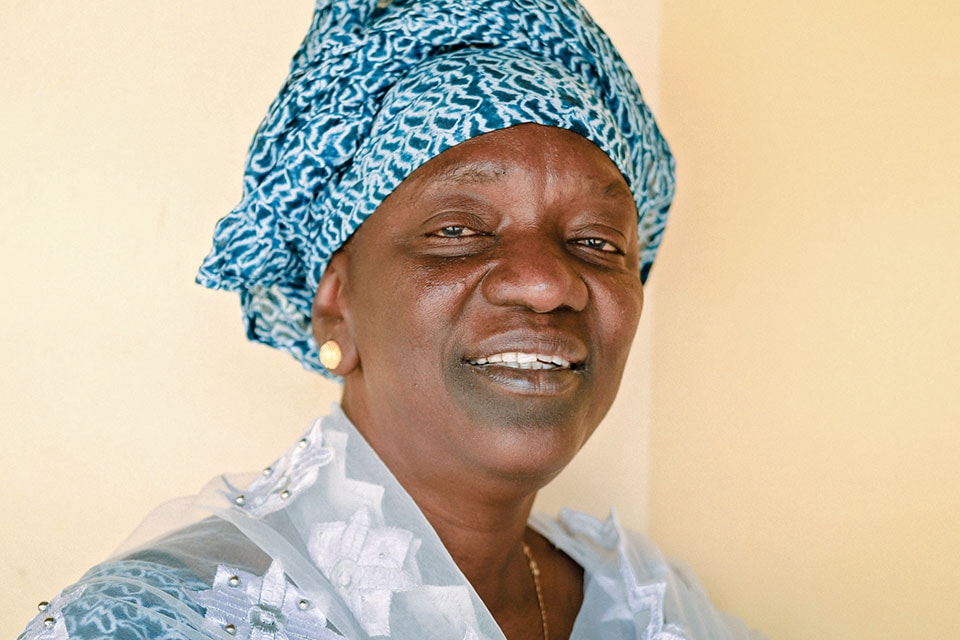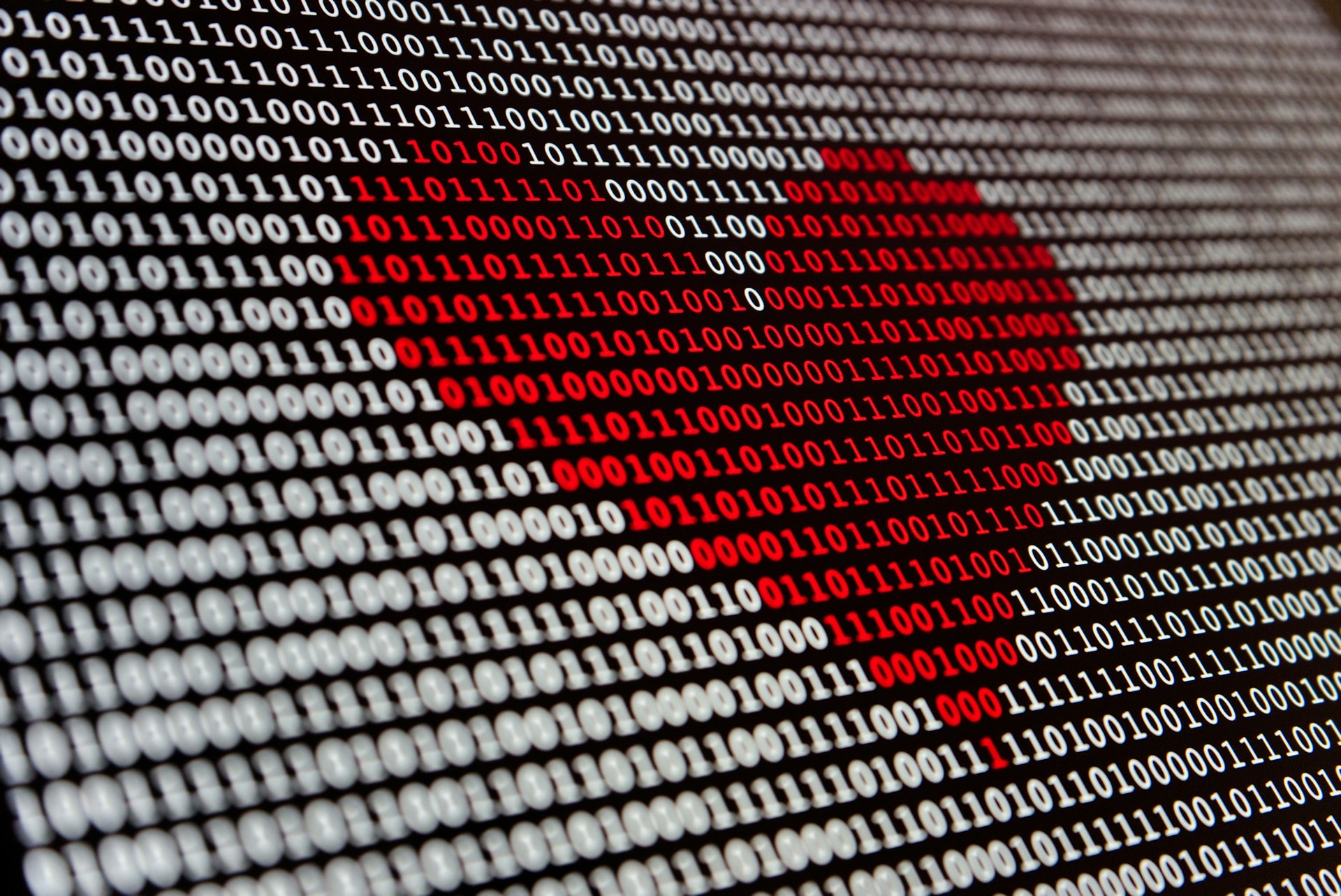Yesterday, on the 20th of April, Derek Chauvin was found guilty of the murder of George Floyd.
The trial took a mere 15 days before the jury of 12 people, deemed a racially diverse body, decided that Derek Chauvin was guilty in the charges of second-degree murder, third-degree murder, and second-degree manslaughter. He now faces a maximum sentence of 75 years in prison, which will be decided in June.
Over the past 15 days, we have been witnessing a rigorous examination of the event. Going through proof of Derek Chauvin’s training and experience of 19 years in the police force. Engaging with the video footage that sparked global outrage, yet again. Presenting the medical examinations and the testimonies from individual witnesses to the police force, each piece of evidence confirming what we already knew to be true: It was Derek Chauvin’s knee that ended George Floyd’s life.
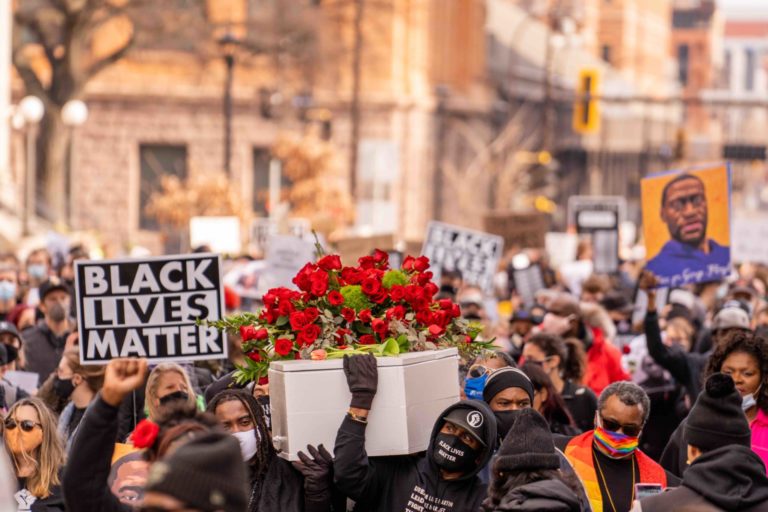
Watching the footage of George’s final minutes yet again has been a clear reminder of the brutal injustice embedded in a deeply racist system.
As you watch George’s eyes flicker, slowly surrendering to the injustice befallen upon him, you turn to Derek Chauvin. There is something about his determinacy. The way he purposefully forces his body into George’s neck. The way he willingly, while George pleads for mercy, lifts his toes to force the knee deeper. The way that, as George stops calling for his mother, as he stops uttering the words, “I can’t breathe,” Derek Chauvin looks up with a lack of remorse for the life he is taking.
George was shown no mercy. On the 25th of May 2020, he drew his last breath at the cost of a $20 counterfeit bill. No justice was served that day, and enough is enough. That day will, I hope, remain forever in our memory, in our history, as the day we all said enough is enough.
“He knew better, he just didn’t do better. This wasn’t policing, this was murder. He did what he did on purpose, and it killed George Floyd.” Those were the closing remarks by the trial’s prosecutor, Steve Schleicher.
Then, we waited. We awaited the verdict. Ironically, while many have claimed that racism isn’t systematic or even went as far as fully denying it, businesses and buildings in Minneapolis immediately boarded up. They already predicted that there might be unrest like last year and, like a lot of us who have been witnessing the trial, expected the worst. We could already see him walk free with minimal charges. We already imagined that racial injustice would be perpetuated yet again.
Related Articles: Non-Black Minorities Speak About BLM | Defunding The Police: What It Really Means | Tackling Systemic Racism and Our Biases Through Empathy
A fair presumption, given that the system is rigged against African Americans and that the judicial system in particular has shown racial bias. Since 2005, “of the 140 officers charged in fatal shootings, only 44 have been convicted,” according to the Financial Times. One name that instantly comes to mind is Philando Castile. On the 6th of July, 2016, he was fatally shot by Jeronimo Yanez while reaching for his identification – officer Yanez thought he was reaching for a gun and immediately shot Philando Castile. Jeronimo Yanez was acquitted of all charges and allowed to walk free while another black life was taken without consequence – without justice.
So why would this time around be any different? But ten hours later, a verdict was reached and Derek Chauvin was found guilty on all charges.
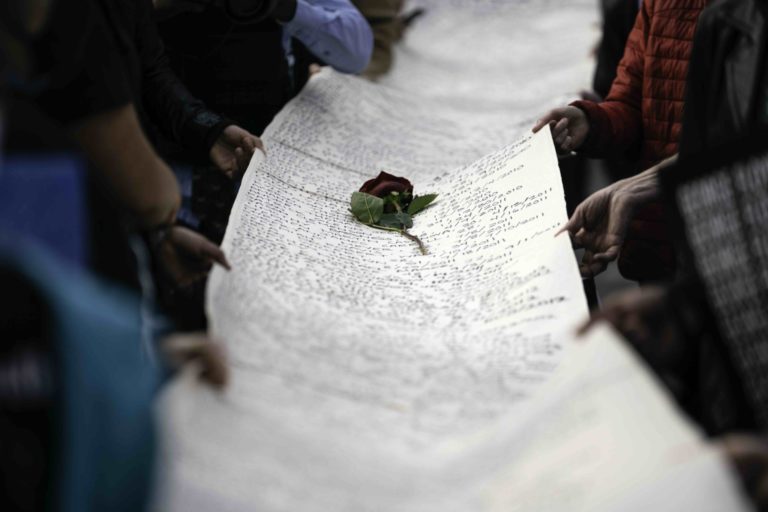
Yesterday, some said justice was served, others claimed that merely accountability was honoured. With cases such as these, the victories are historic, important, but they also hide the larger reality, which is that the system is still deeply unjust. I personally found myself asking if Derek Chauvin would have been found guilty had there not been this degree of worldwide attention to the trial. It was one trial and one moment in history,” civil rights lawyer Nekima Levy Armstrong told the New York Times. “However, this moment didn’t happen because the system worked.”
This trial grants a whiff of justice and a hint of a better future, but black lives are still being treated like they do not matter. Simply during the trial period, between the 29th of March and 20th of April, two black lives were taken at the hands of the police: Daunte Wright and Adam Toledo. Even yesterday, on the 20th of April, when the verdict was given, another black life was taken: the police fatally shot 16-year-old Ma’Khia Bryant.
There are countless black Americans who are confronted with unfair and unjustified violence every day. Countless black people feeling the deep-seated injustice of a system that is rigged against them. Yet, when they are not caught on camera or don’t gain the same clout as these cases have, it’s unlikely that any form of either justice or accountability will be served.
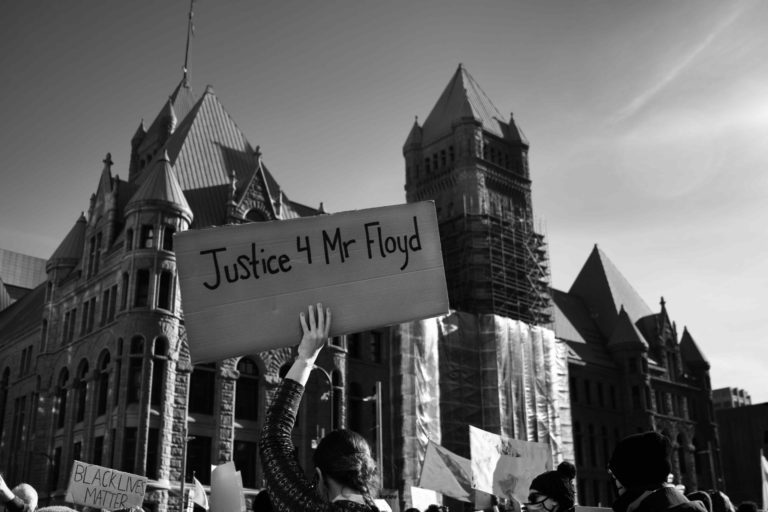
The verdict in the Derek Chauvin trial is a historic moment. A white police officer being convicted of killing a black man is important. But not every killing is filmed. Not every violent atrocity enacted against the black American is posted on social media. This racial violence has endured for centuries. From the first Africans arriving in America in 1619, to the fatal lynching of Emmett Till in 1955, to the past year’s disheartening list of killings by the police: George Floyd, Rayshard Brooks, Ahmaud Arbery, Breonna Taylor, Daunte Wright, Adam Toledo, Ma’Khia Bryant – the list goes on.
So, while tears flush and while we share embraces with a sense of justice rushing over us, it is important to remember that this was just one step in what is by no means a short run. This is a marathon. Many would say it is a marathon that will never end. Some would say things are at last changing. We are facing a fight to end a racist system that has endured for far too long, perpetuating racial injustice in every corner of our society.
But one ounce of justice does not make up for endless confrontations with injustices in the black community. Appreciate this moment but acknowledge that the fight does not end here. We cannot let it end here. That has happened far too often. Black lives are not a trend. It is a committed fight to end a racist system and achieve racial equality. So, remember this day. Remember their names. Remember that this is a change we all must make now. Black lives still matter.
Editor’s Note: The opinions expressed here by Impakter.com columnists or contributors are their own, not those of Impakter.com. — In the Featured Photo: A person holding a “Rest in Power” sign, Hennepin County Court House, Minneapolis. Featured Photo Credits: Wikimedia Commons.


